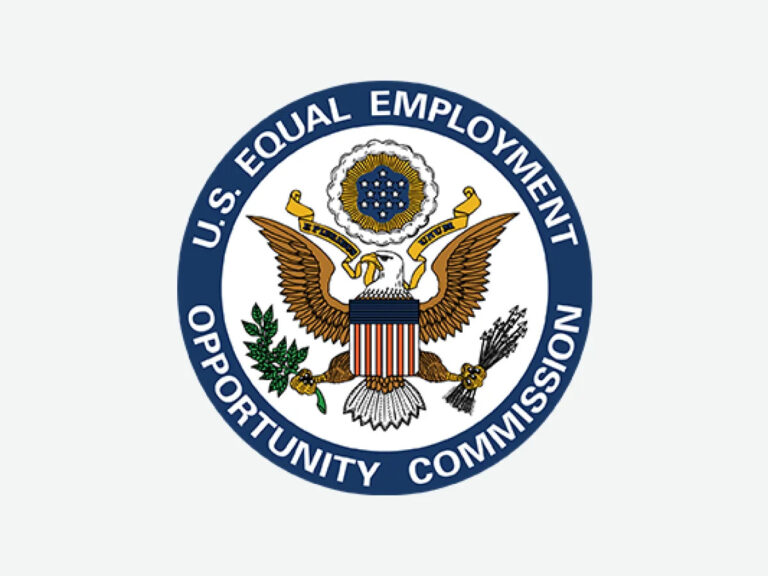In today’s complex and evolving labor market, understanding the legal rights that safeguard employees is indispensable. From discrimination protection to wage and hour rights, privacy considerations, and health and safety regulations, these rights shape our workplace experiences and guarantee fair treatment. But how well-versed are we in these rights? Are we fully cognizant of the extent of these protections or the scenarios under which they apply? We invite you to join this enriching exploration of employee legal rights, a journey that promises to equip you with invaluable knowledge for your professional journey.
Understanding Employment Discrimination Laws
In the sphere of employment, understanding discrimination laws is of paramount importance. These laws aim to promote fair treatment and equality, prohibiting discriminatory treatment based on specific protected categories, such as race, sex, age, disability, religion, and national origin.
Discrimination types can broadly be categorized into two: direct and indirect. Direct discrimination happens when an employee is treated less favorably because of their protected characteristic. Indirect discrimination, on the other hand, occurs when a seemingly neutral policy or practice disproportionately impacts a protected group. For instance, a job requirement that is unnecessary for the role but inadvertently excludes certain racial or age groups.
Legal remedies for employment discrimination vary, depending on the specific circumstances and the nature of the violation. These may include reinstatement of the job, back pay, promotion, changes in the discriminatory policy, and even damages for emotional distress. In some cases, punitive damages could also be awarded to deter and punish severe discriminatory practices.
Wage and Hour Rights Explained
Understanding your rights related to wages and hours is an integral part of being an informed employee. These rights are established by fair labor laws, guaranteeing that workers receive a minimum wage and overtime pay for any work beyond the standard workweek.
Employers are obligated to maintain accurate payroll records, documenting hours worked and wages paid. Wage deductions are only permissible under specific conditions, such as for tax purposes or with your explicit consent. It’s crucial to understand these rules to prevent wage theft, a term describing illicit practices like unpaid wages or underpayment.
Certain employees, known as exempt employees, may not be eligible for overtime pay due to their job duties and salary level. Understanding whether you fall into this category can help you manage your expectations regarding compensation.
Furthermore, tip regulations guarantee that employees who earn tips are paid fairly. Generally, employers cannot take their employees’ tips, and if tips combined with an employer’s direct wages do not meet the federal minimum wage, the employer must make up the difference.
Lastly, collective bargaining rights allow employees to negotiate wages and working conditions collectively. This right is a powerful tool for workers to guarantee fair treatment and compensation.
The Right to Privacy at Work
As we continue to navigate the complexities of employee rights, it becomes vital to address the subject of privacy in the workplace. This discussion will focus on comprehending workplace privacy laws and the essential role they play in protecting personal information. By understanding these aspects, employees can better advocate for their rights and guarantee their personal boundaries are respected.
Understanding Workplace Privacy Laws
Steering through the landscape of workplace privacy laws can often seem like a challenging task. These laws encompass areas such as employee monitoring, privacy expectations, workplace surveillance, and data protection, among others.
In most jurisdictions, employers have a legal right to monitor their workplaces. However, this right is usually tempered by the employees’ reasonable expectations of privacy. This is where the concept of consent requirements comes into play. Employers must adequately inform their employees about the extent and nature of the surveillance to meet these requirements.
Data protection laws also form a significant part of workplace privacy laws. They regulate how employers can process and store the personal information of their employees. These laws often extend to electronic communications, including emails and instant messages, particularly when using personal devices for work purposes.
Another vital aspect of workplace privacy laws is their impact on social media policies. Employers must tread carefully to guarantee that their policies do not infringe upon the employees’ rights to private communications, even on corporate-owned platforms. Understanding these complex laws is key to guaranteeing both employers and employees are protected.

Protecting Personal Information
Every employee carries a fundamental right to privacy at their workplace, where their personal information is often at stake. This privacy goes beyond the intrusiveness of surveillance and extends to the safeguarding of personal data.
In the digital era, data security is a paramount concern. Employers may have legitimate reasons to access certain types of personal data — such as contact details for communication purposes. However, they are legally obliged to protect this information from unauthorized access, misuse, or disclosure.
Comprehensive data security measures should be implemented to uphold this obligation. These might include encryption, regular updating of security software, and restricted data access. Employees should also be informed about who has access to their data and under what circumstances it can be accessed.
In addition, employers must adhere to privacy laws and regulations that govern the way personal data is collected, used, and stored. Violation of these laws can lead to penalties and damage to the company’s reputation.
Unraveling Workers’ Compensation Rights
The subject of workers’ compensation rights is a pivotal aspect of employment law. These rights, encompassing the understanding of workers’ compensation and the process of claiming compensation benefits, play a vital role in protecting employees from financial hardship following work-related injuries. It is essential to explore these aspects to guarantee a thorough comprehension of one’s entitlements and obligations under these provisions.
Understanding Workers’ Compensation
A significant proportion of employees may remain unaware of their intricate rights under Workers’ Compensation laws. This lack of awareness could lead to detrimental consequences, especially when one experiences workplace injuries. Understanding Workers’ Compensation rights is not just essential, it is empowering. It sets the ground for employees to claim the benefits they are entitled to, in the event of unforeseen workplace incidents.
Worker’s Compensation is a form of insurance offering employee benefits for those injured or becoming ill as a direct result of their job. It is designed to cover medical costs, rehabilitation expenses, and potentially lost wages. This insurance is a state-mandated program, meaning the rules and regulations differ across states.
Employees should note that Workers’ Compensation is a no-fault system. This means that an employee claiming benefits doesn’t have to prove the employer was negligent to receive them. However, there are exceptions, and certain behaviors may disqualify an employee from receiving benefits. As a result, educating oneself about these rights is paramount to ensuring fair treatment and protection in the workplace.
Claiming Compensation Benefits
Steering through the process of claiming Workers’ Compensation benefits can often seem like an intimidating task, especially amidst the distress of a workplace injury or illness. It is essential, however, to understand your rights and obligations in this process to secure the benefits you’re entitled to.
The first step in claiming benefits is filing disability claims. This includes temporary or permanent, partial or total disability, depending on the severity and duration of the injury or illness. You have a legal right to compensation for medical expenses and wage loss related to your disability.
In certain cases, if your injury or illness prevents you from returning to your previous job role and you remain unemployed, you may be eligible for unemployment benefits. However, this can be complex as it largely depends on the individual state laws and the specifics of your case.
Overview of Family and Medical Leave
Under the remit of employment law, the Family and Medical Leave Act (FMLA) holds considerable importance. This law enables eligible employees to take unpaid, job-protected leave for specific family and medical reasons. Medical leave eligibility is contingent upon a serious health condition that makes the employee unable to perform the essential functions of their job. However, employees may wonder if they can take more than the standard 12 weeks of medical leave. To explore this topic in more depth, learn about eligibility for medical leave under the FMLA.
Family leave policies, as outlined in the FMLA, allow employees to take time off for the birth of a child, or to care for a spouse, child, or parent suffering from a serious health condition. The FMLA also covers exigencies related to a family member’s military service. Family leave and medical leave are both capped at a maximum of 12 weeks per year, though some states may offer more generous provisions.
Employers are required by law to uphold these rights and to reinstate employees to their original job or an equivalent position upon their return. It is important for employees to be aware of these rights to guarantee they receive the leave they are legally entitled to, without fear of reprisal from their employer.
The Importance of Whistleblower Protections
Moving from family and medical leave rights, another significant facet of employee rights revolves around whistleblower protections. Whistleblower protections are integral to maintaining a transparent and ethical workplace, providing a crucial safeguard for those who expose wrongdoing within an organization.
These protections are designed to encourage employees to report wrongdoing by offering whistleblower incentives, such as financial rewards or job security, to those who come forward with information. Whistleblower incentives are not merely a token of appreciation; they are a strategic tool to promote a culture of honesty, integrity, and accountability, deterring corporate malfeasance and fostering public trust.
Equally important are retaliation protections, which shield whistleblowers from adverse actions such as termination, demotion, or harassment from their employer. Retaliation protections guarantee that employees can voice their concerns without fear of reprisal, upholding their right to a safe and respectful work environment.
In essence, whistleblower protections are a critical pillar of employee rights, underpinning the values of truth and justice in the workplace. They serve as an essential check and balance, guaranteeing that corporations operate within the boundaries of the law and uphold their duty of care to their employees.
Decoding Workplace Safety and Health Rights
Just as whistleblower protections are essential for ensuring transparency and integrity, the significance of workplace safety and health rights cannot be overstated in the context of employee rights. These rights are enshrined in law and provide a framework for securing safe and healthy working conditions, free from recognized workplace hazards.
Every employee has a right to be informed about potential risks in their working environment. Employers are required by law to identify and eliminate recognized workplace hazards, either by modifying work practices or by providing appropriate safety equipment.
This leads us to the concept of safety protocols, which are systematic methods for maintaining a safe and healthy workplace. These protocols include procedures for handling hazardous materials, operating machinery, or emergency response. Employees have a right to be trained in these protocols to protect themselves and their colleagues.
Furthermore, employees also have the right to report any perceived violation of safety protocols or the presence of workplace hazards without fear of retaliation. This right is vital for maintaining a proactive safety culture within the organization.
Understanding these rights can empower employees to actively participate in maintaining a safe and healthy work environment.







